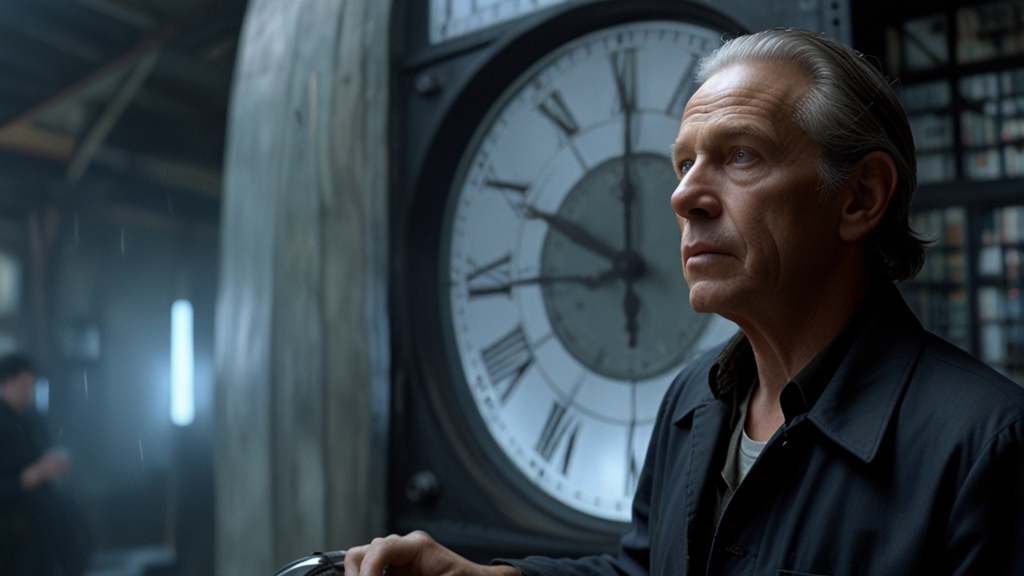The Physics of Time Travel: Is It Really Possible?
Time travel has long fascinated humans, sparking countless stories, movies, and debates. As intriguing as it is in fiction, one can't help but wonder: can time travel be achieved within the realm of physics? To answer this question, we must delve into the principles of modern physics, particularly those proposed by Albert Einstein, and explore various theories and hypotheses that attempt to make time travel a reality.
Einstein's Theory of Relativity
Albert Einstein's theory of relativity laid the groundwork for our modern understanding of time and space. According to Einstein's general theory of relativity, time is not a constant and unchanging backdrop against which events occur; rather, it is intertwined with the fabric of space itself, forming what is known as spacetime. One of the cornerstones of this theory is that massive objects cause a curvature in spacetime, which we perceive as gravity.
Einstein's special theory of relatity, on the other hand, introduces the concept of time dilation—where time passes differently for observers in different frames of reference. For instance, a person traveling at near the speed of light would age more slowly compared to someone standing still. This phenomenon has been confirmed through various experiments and suggests that under extreme conditions, the flow of time can be altered, bringing up the tantalizing possibility of time travel.
Wormholes: Bridges Through Spacetime
If time and space are interconnected, can we manipulate them to travel through time? One theoretical construct suggests we can: wormholes. A wormhole, or Einstein-Rosen bridge, is a shortcut through spacetime, potentially connecting distant points in both space and time.
"In 1935, Einstein and physicist Nathan Rosen described wormholes as bridges across spacetime. These solutions to the equations of general relativity suggest that if one could travel through a wormhole, one might travel not just through space, but through time as well."
Though wormholes are intriguing, they come with significant challenges. For one, the existence of stable wormholes is purely theoretical, with no empirical evidence to support them. Additionally, creating or sustaining a wormhole would require exotic matter with negative energy density—a substance that has yet to be discovered or understood within the framework of modern physics.
Time Machines and Paradoxes
Another captivating approach involves conceptual time machines. A popular concept was proposed by physicist Kip Thorne, who suggested that if a wormhole's two ends were in different states of motion, it could theoretically function as a time machine. However, such ideas often lead to paradoxes.
The most famous of these is the "grandfather paradox," which posits: What if you traveled back in time and prevented your grandparents from meeting? This would mean you would never have been born to travel back in time in the first place. Physicists have proposed several solutions to these paradoxes, such as the "many-worlds interpretation" from quantum mechanics, which suggests that each action creates a new, parallel universe where different outcomes occur.
"Time travel paradoxes present significant philosophical and logical challenges. Resolving these paradoxes might require a deeper understanding of quantum mechanics and the nature of reality itself."
The Current Scientific Consensus
Despite these alluring theoretical prospects, the scientific consensus remains skeptical about the practical feasibility of time travel. The energy requirements, technological constraints, and unresolved paradoxes suggest that, with our current understanding and capabilities, time travel remains firmly in the domain of science fiction.
Yet, the exploration of time travel theories continues to inspire both physicists and the public, pushing the boundaries of our understanding of the universe. Whether or not time travel becomes a reality, it undoubtedly expands our conception of what might be possible and fuels the perpetual quest for knowledge.
Conclusion
So, is time travel really possible? The answer is a complex interplay between the known and unknown. While modern physics provides tantalizing clues that time travel could be theoretically feasible—via concepts like time dilation, wormholes, and quantum mechanics—the practical realization of these ideas remains a profound challenge. Whether we can ever overcome these obstacles is a question for future generations, but the journey to find the answer will continue to expand our horizons in the realm of scientific discovery.







